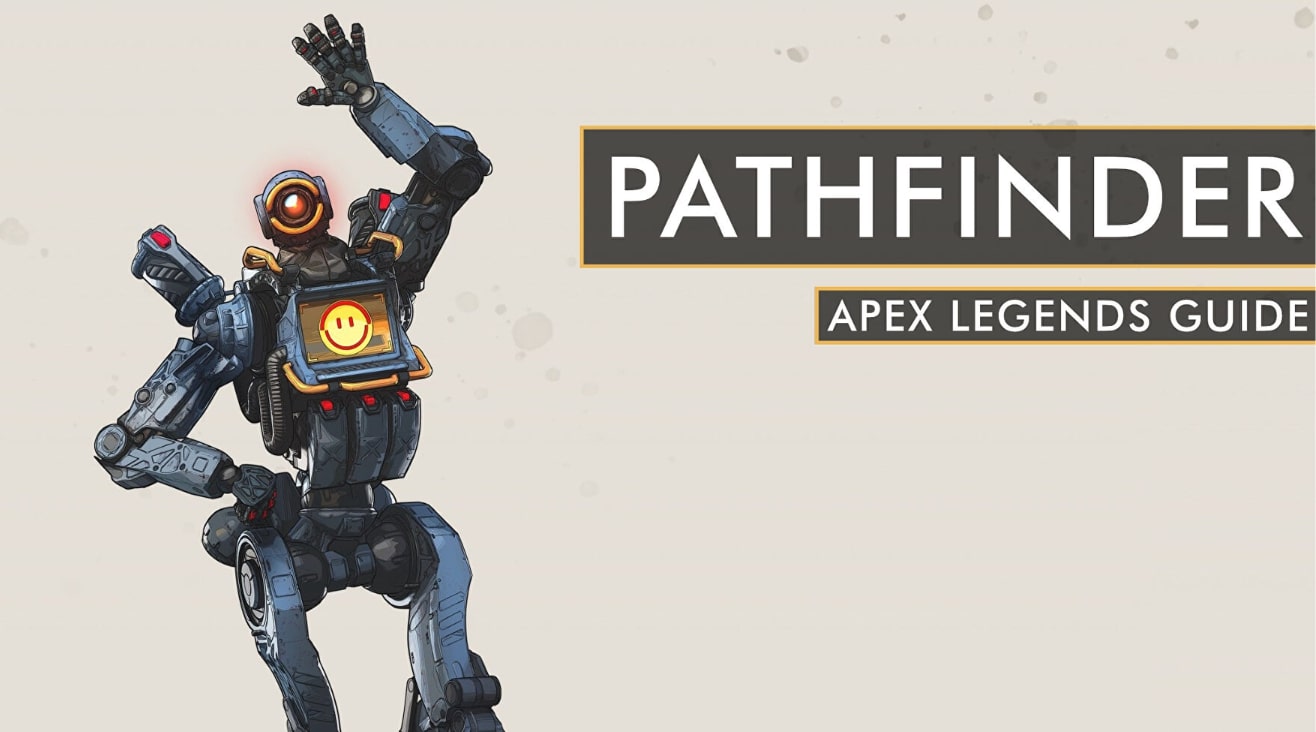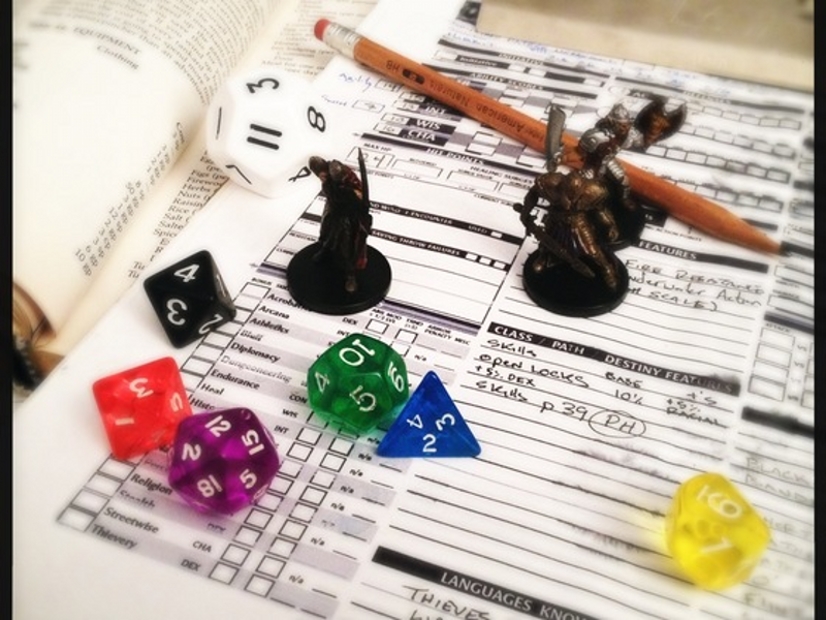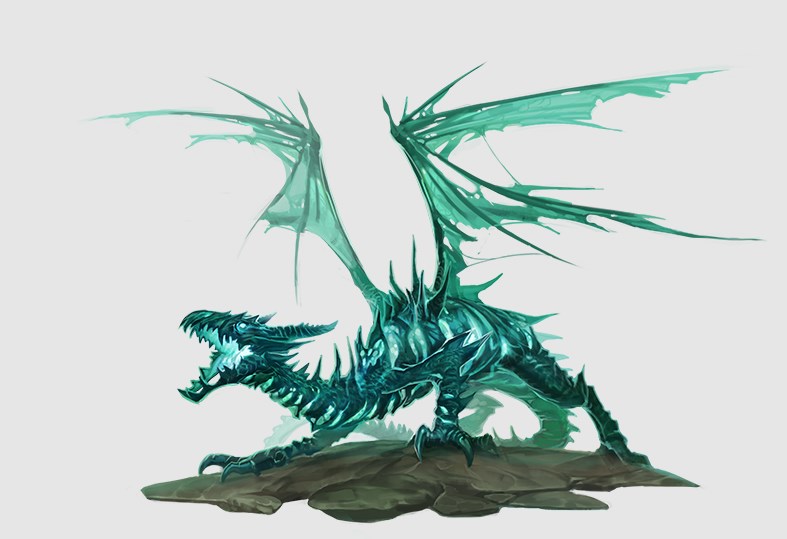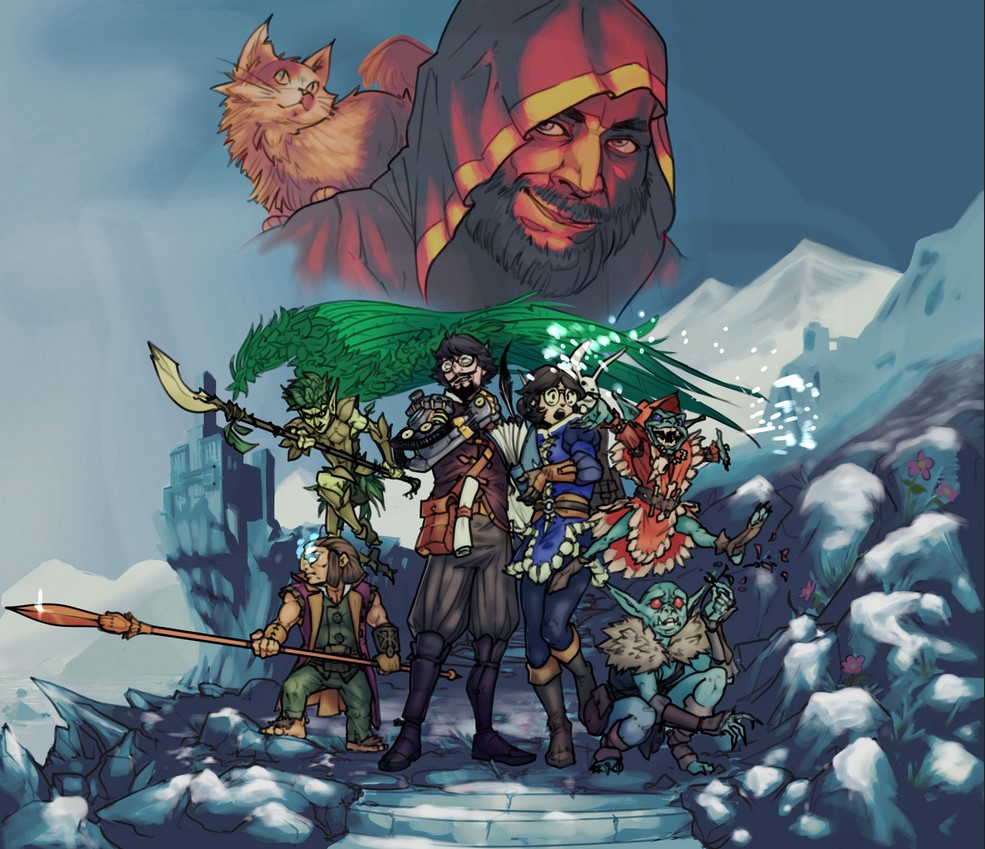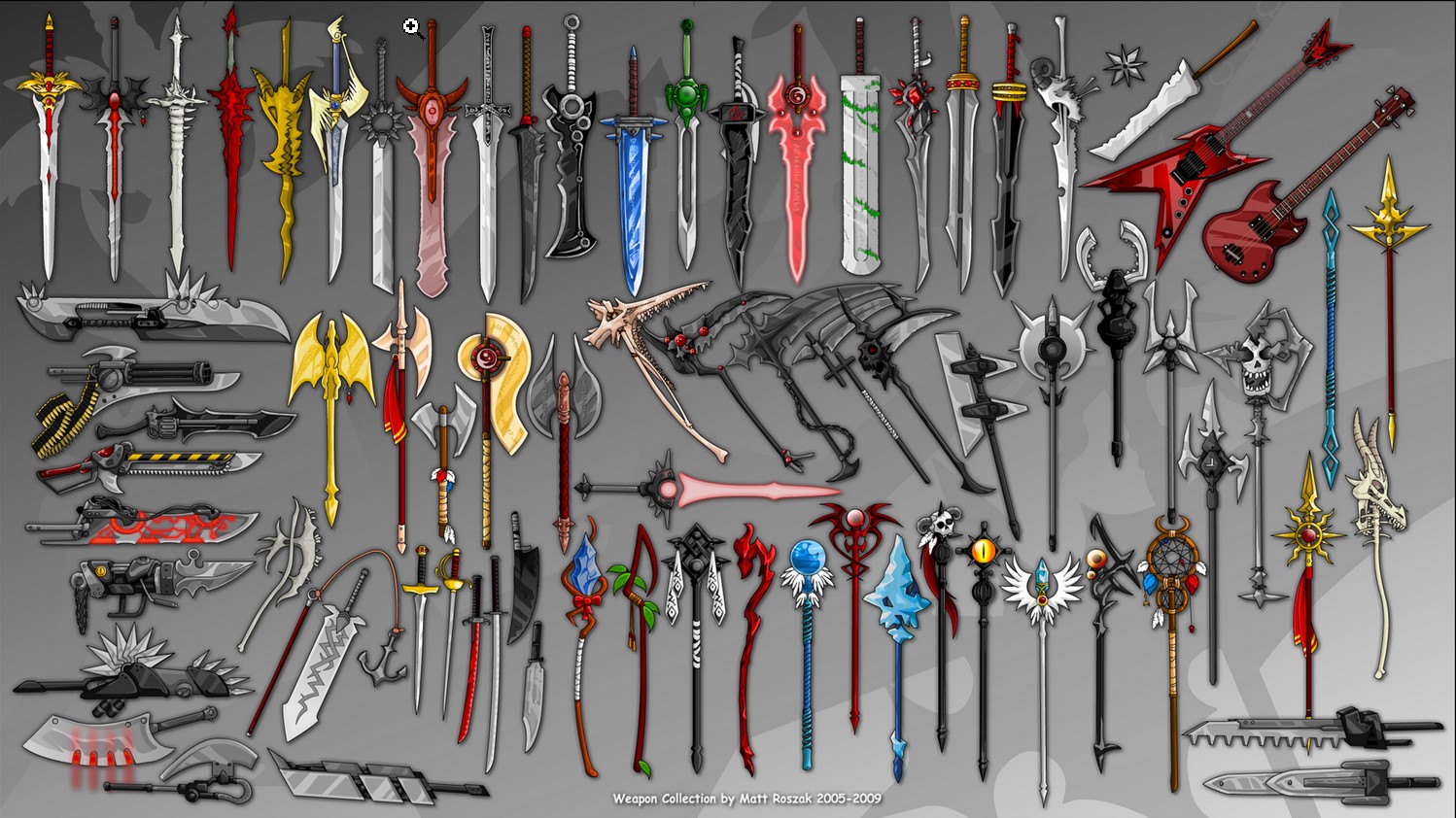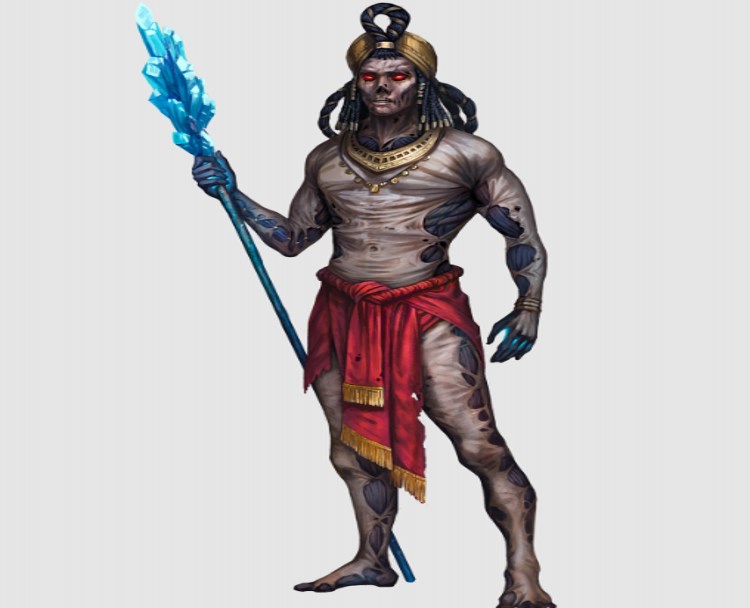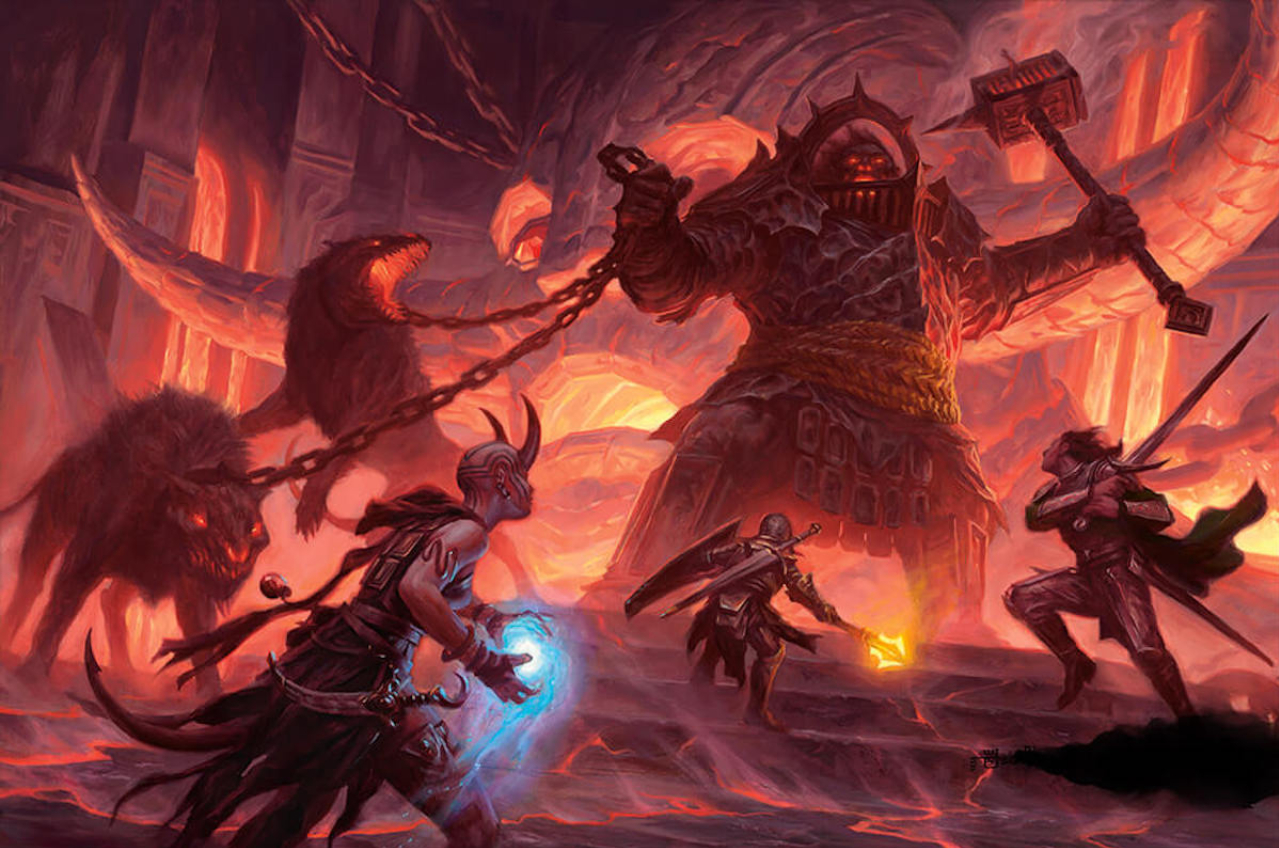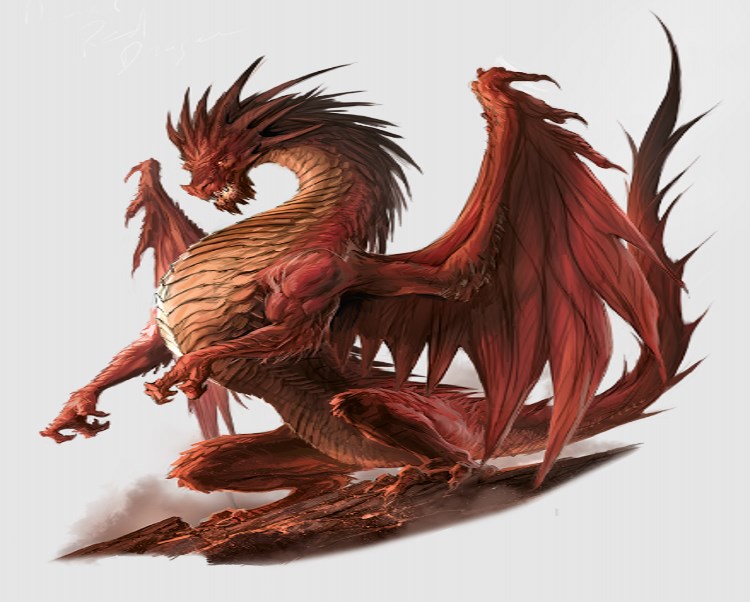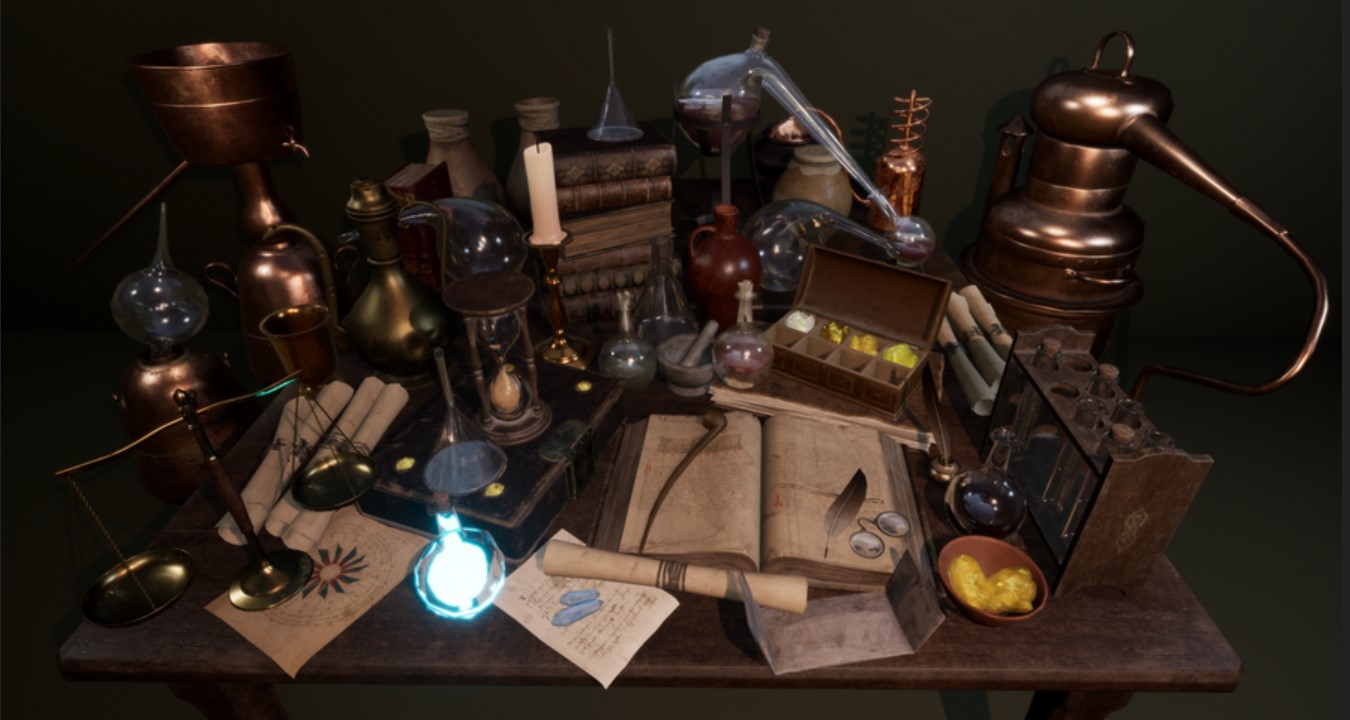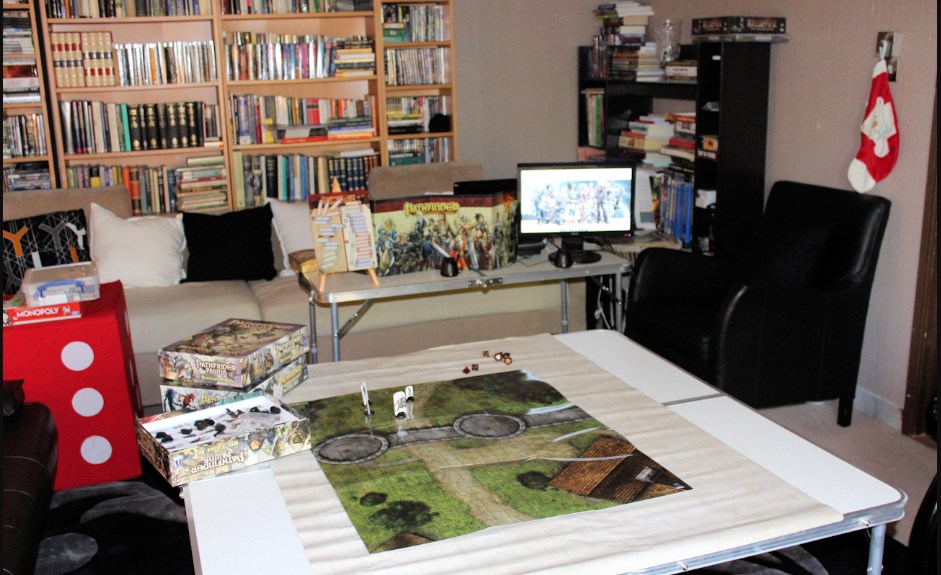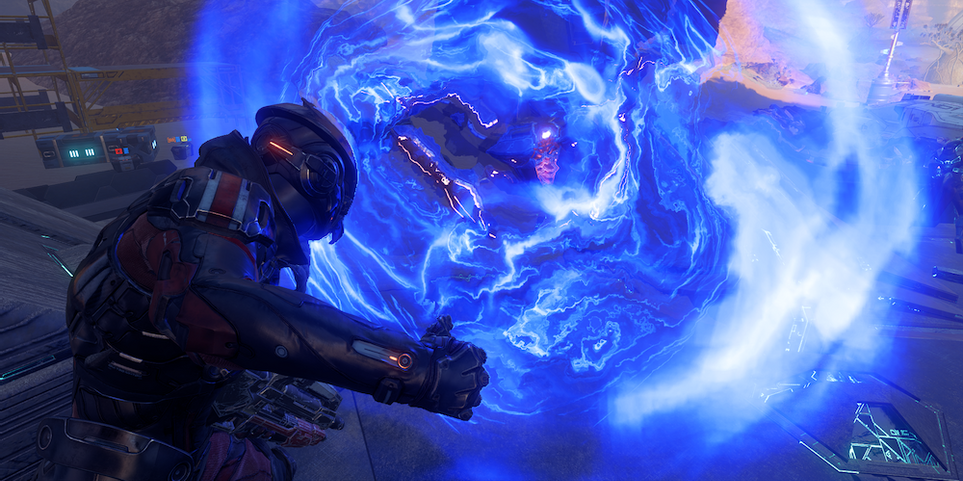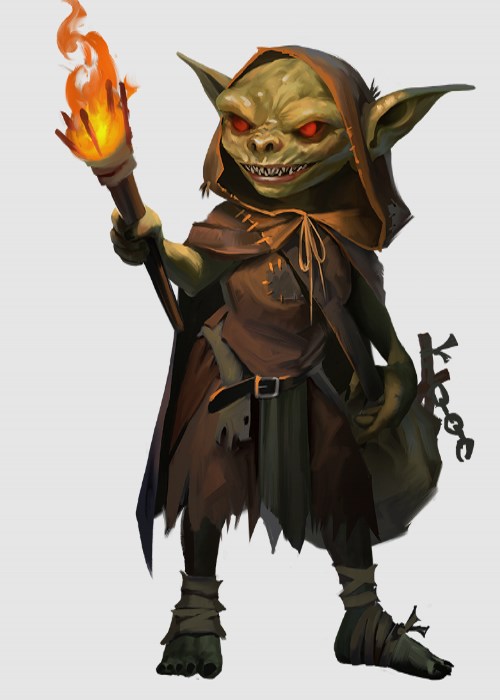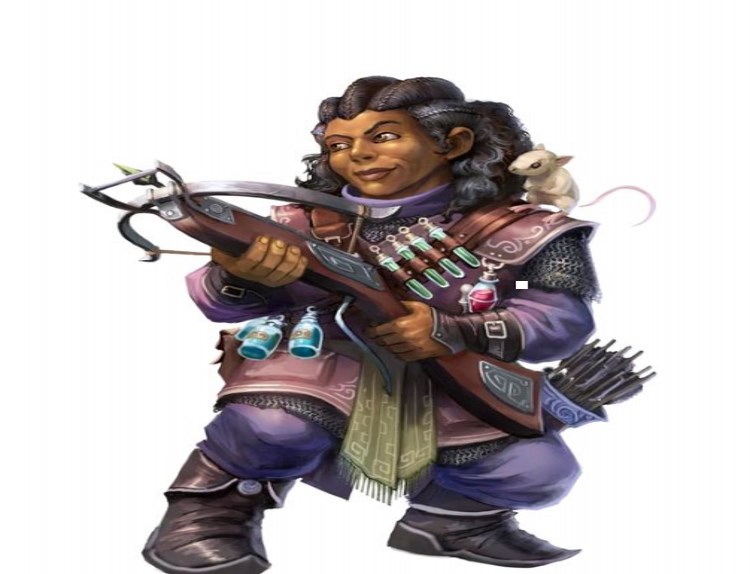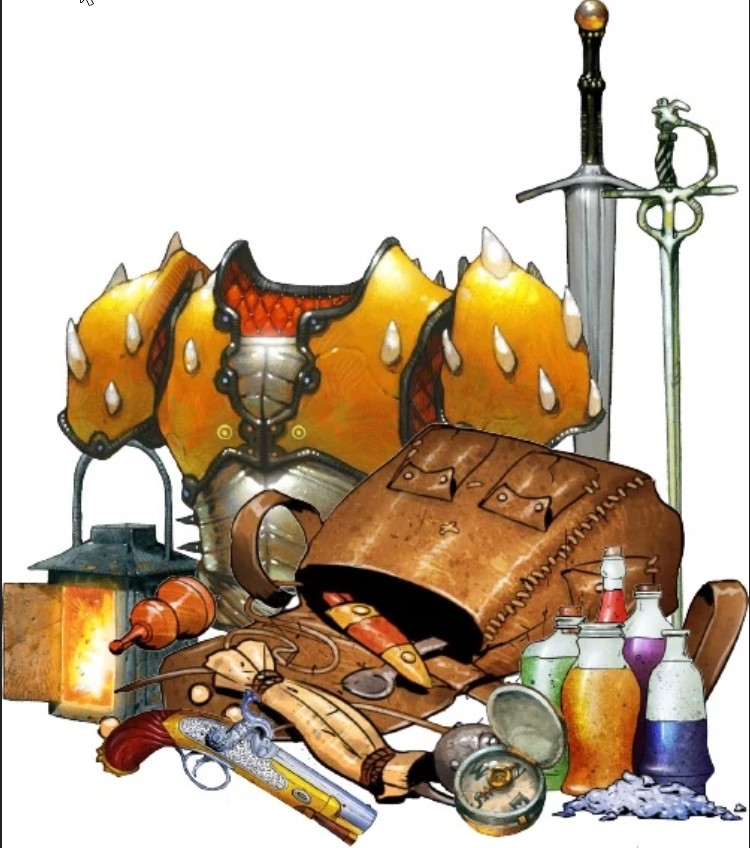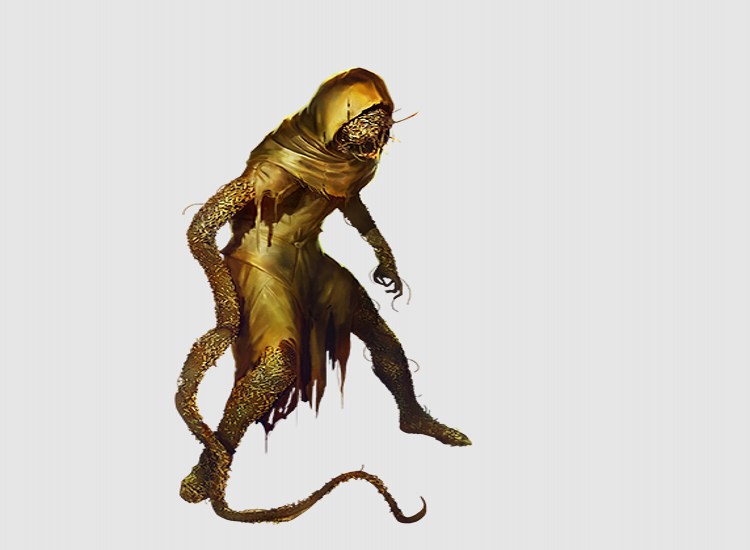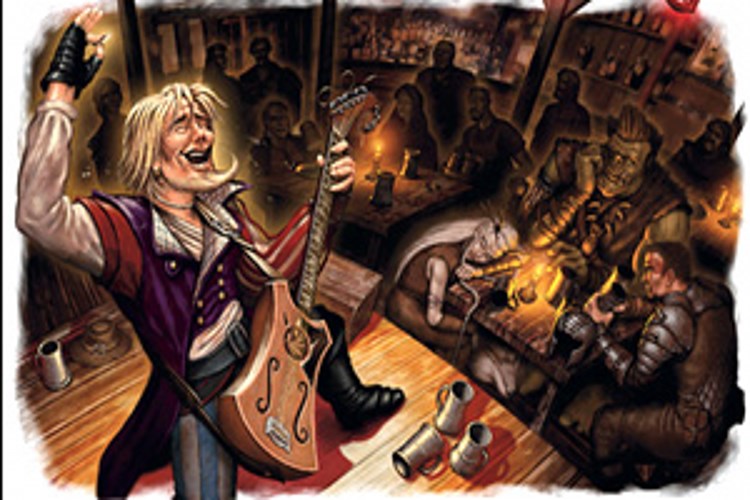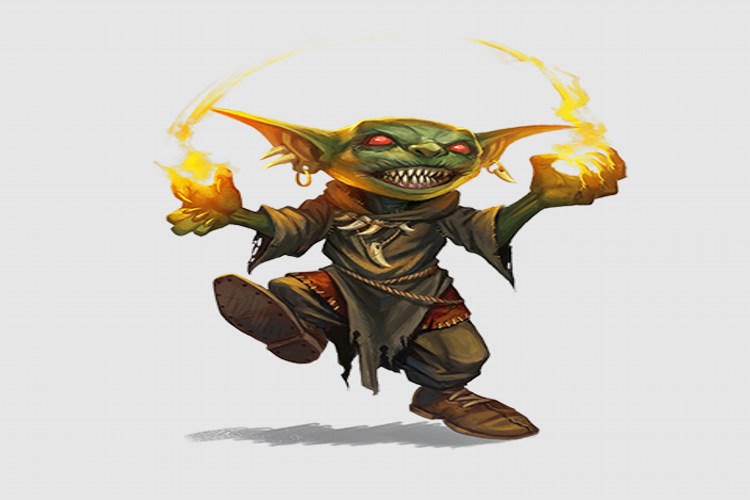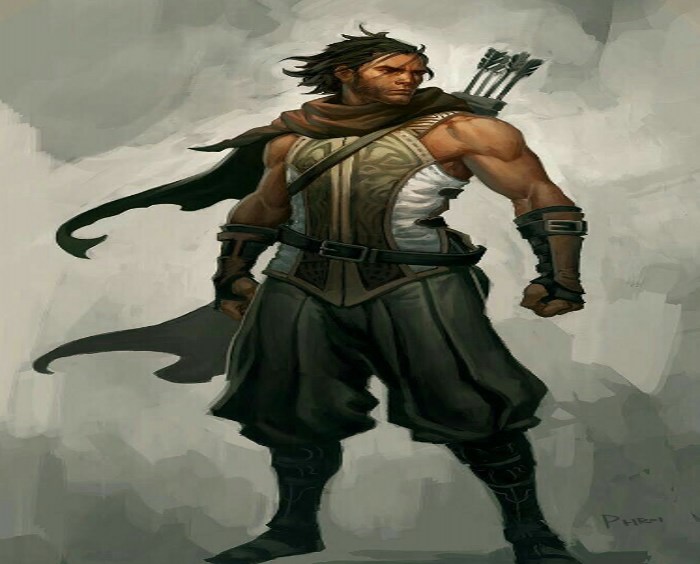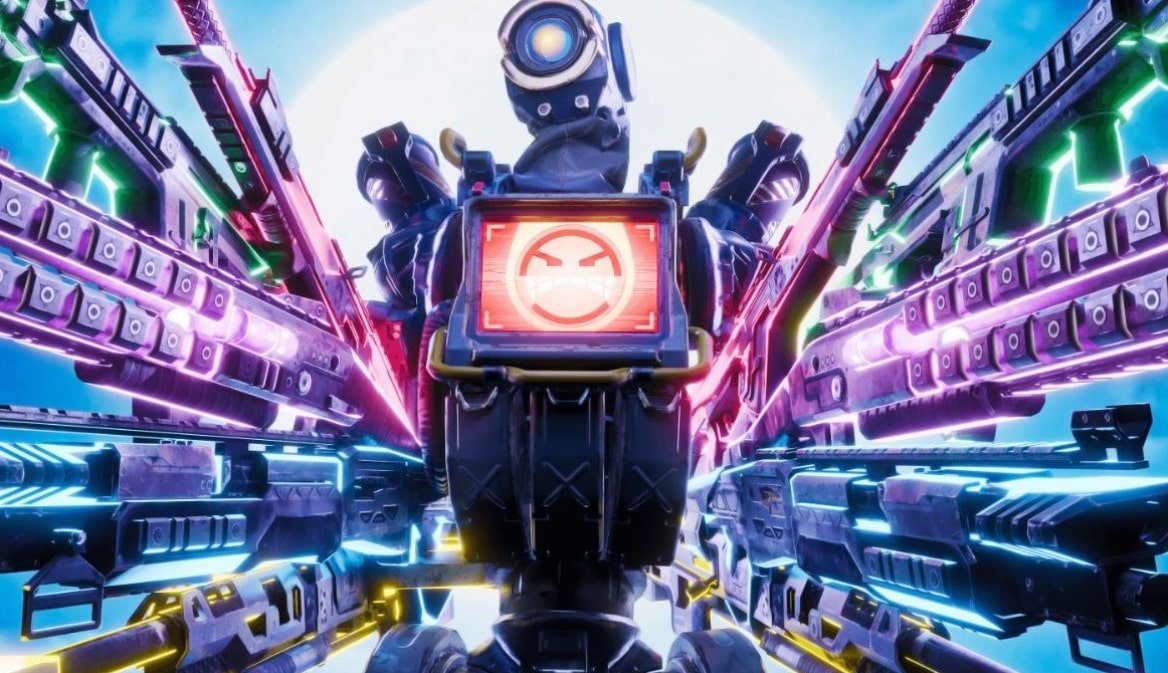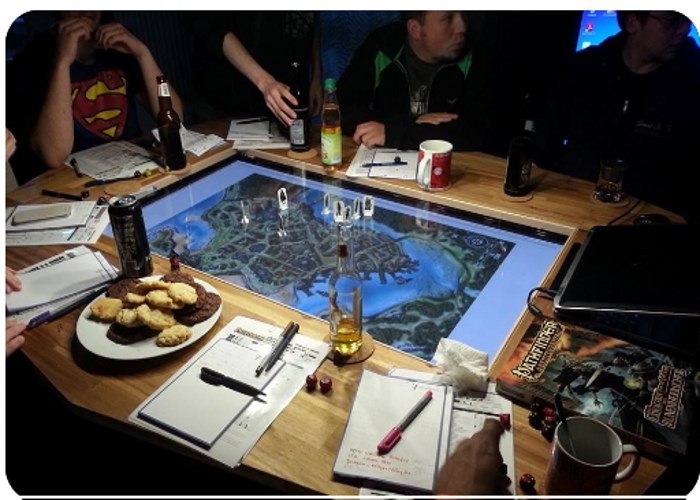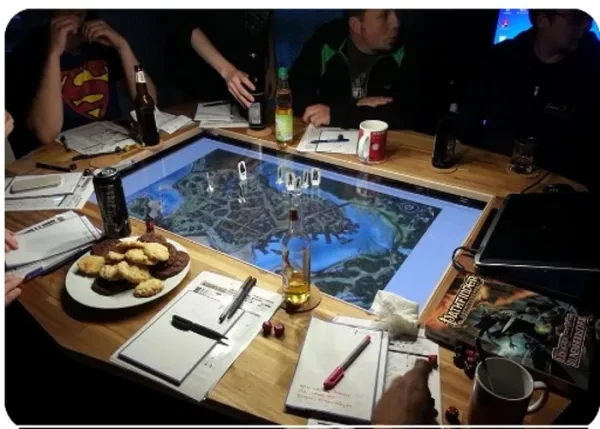

So you’ve just been invited to your first game of Pathfinder, and you’re reading the new book or PDF your friend gave you, trying to figure out how to make a character. But you can’t make heads or tails of any of these terms. Does this sound like you? You’re in the right place. When I first started playing, I was also clueless. Character creation day was always hard for me, but with these 25 tips, hopefully, character creation will be easier for you. These tips will apply whether you’re playing the First or Second Edition.
1. Know the Rules
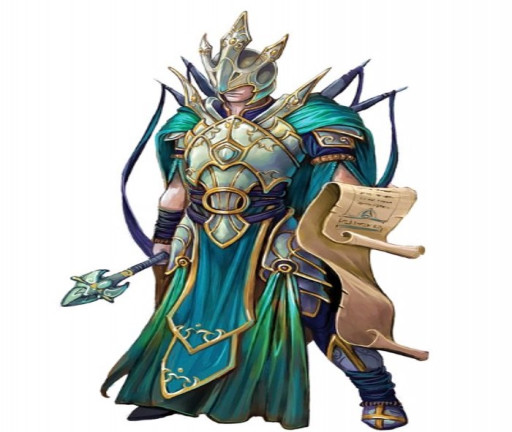
A member of the Decemvirate, the people who make the rules of the Pathfinder Society
This might seem obvious, but it’s important to know the rules going into the game. Luckily, your core rulebook or PDF will have all the rules written down for you. They can be a lot to take in, but your fellow Pathfinders will help you. Your Game Master (or GM) will be happy to help explain concepts you have trouble with. Particularly during character creation, since it’s easier to give advice there than in a fight.
It's also important to note that there are differences between casual and Organized Play. Some classes and races are forbidden in Organized Play unless you have a specific boon (a pass to use them). These can typically be earned at Pathfinder conventions. If you’re doing Organized Play, check with your GM to make sure what you’re doing is within the rules.
2. Ask Questions!
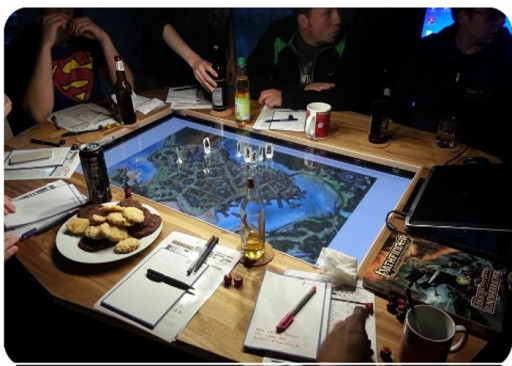
Being at the table with more experienced gamers on character creation day can be intimidating, but worry not! We Pathfinders are a welcoming lot, and we’re always happy to offer advice if asked. Your GM will be an especially helpful resource. It’s far better to ask questions about a class’ abilities when you’re creating your character than in the middle of an intense combat.
Also, remember that there are no stupid questions. Most experienced GMs, especially the ones that are heavily involved in Organized Play, have heard just about everything.
3. Research Things When you’re Away from the Table

Pathfinders do a lot of research on their own.
In-game, Pathfinders are researchers (when they’re not killing crazed cultists or pyromaniac goblins). You can use those same research skills to help in your character-creation process. One site that you will want to make use of is the Archives of Nethys. It's a Paizo-endorsed site that has all the information about classes, characters, spells, and anything else you can think of. The site has info for both editions of Pathfinder and Starfinder, too. Doing your research can be important because, while your fellow players can offer advice, some players only play a few classes, and there’s a chance you’ll pick a class they don’t use and won’t have the answers for.
If you’re a powergamer, there are sites dedicated to building the best characters for each class. However, these are often best used as templates. A character guide can’t prepare you for every situation you’ll encounter. And writers of some Pathfinder scenarios do like to throw curveballs.
4. Remember Party Balance

The motto of Pathfinder is "Explore, Report, Cooperate." The last part is key when it comes to character creation. Party balance is important to consider when you’re in the character creation phase. Pathfinder scenarios have tricks and traps that require people with a variety of skill sets. A party that only has sorcerers will likely fall before an enemy that has immunity to magic. A party of fighters will have trouble without a healer.
During character creation, check with your partners to see what they’re playing. That will help you narrow down what you want to play. Having a balanced party will make your first game a lot more fun.
5. Don’t Stress About Character Backstories

Sharing your character’s story should not be stressful.
I’ve seen a lot of roleplayers enter the game with their characters having huge, complicated backstories for why their character is a Pathfinder. Some of the stories can be novels in their own right (whether or not they’d sell well is another matter). You’ve probably seen them and wondered how you can measure up to them.
The truth is, there’s a chance you can’t. The second you stop comparing your characters’ stories to everyone else, you’ll be able to write better stories.
6. Let your Character’s Backstory Develop Organically
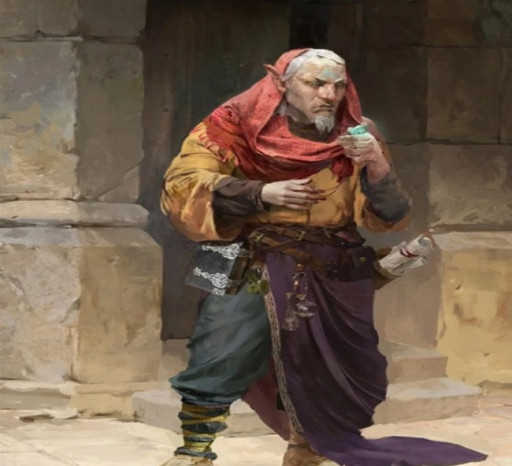
The Storyteller from Pathfinder Kingmaker
If I had the money for every time I’ve seen a player, myself included, write a long, detailed backstory that didn’t end up mattering that much, I’d probably be able to start my own gaming company. Instead of writing a huge backstory going in, let the story develop in the game. This is simpler than trying to wedge the backstory into the game.
Let me give you some examples. Your character may begin as a pathfinder in it for the money, but you discover something worthwhile to fight for. Your character could develop a rivalry with a recurring opponent. Or maybe they fall in love with the princess they are going to rescue. Yes, these are generic ideas, but no one is expecting you to be the next Shakespeare.
7. Some Classes are More Complicated than Others
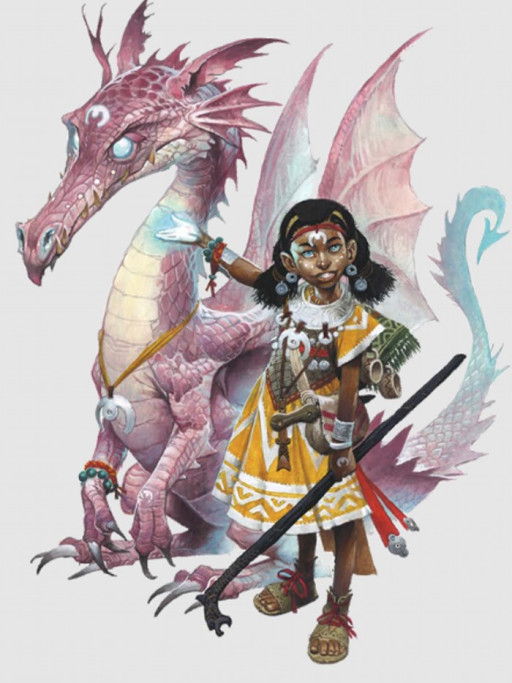
Certain classes are more complicated than others. Some classes are easy to use. Fighters hit things hard. Clerics heal the party. Sorcerers blow stuff up in a variety of inventive ways. Most of these classes don’t require too much effort for a new player.
Other classes can be a bit more complicated. A summoner can wind up controlling a lot of monsters by the time they get to mid-level. I’ve seen a guy make a summoner that could summon an army of dinosaurs (and anything else). It was a fantastic revenge prank against a GM that annoyed him. However, managing all of these creatures individually took a lot of focus.
If you’re the type to struggle with controlling more than one thing at once, classes that require such things may not be for you. Choose classes that are suited to your abilities. Being aware of your own capabilities is a useful skill both in-game and in real life.
8. Give Your Characters a Variety of Fighting Options
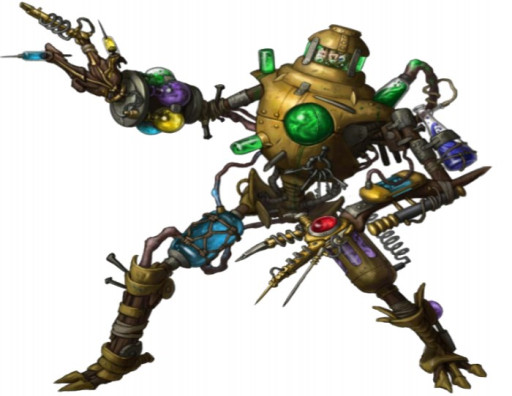
Creatures like this Alchemical Golem require you to adjust your attack strategies
In Pathfinder, as in most RPGs, a lot of monsters have strengths and weaknesses. Some monsters will be resistant to or immune to certain attacks. Most golems are immune to magic damage. The undead are immune to mind control. Some monsters take less damage from weapons that aren’t made from certain materials. What’s a player to do?
Have a backup plan! If that undead horror is immune to your bard’s mind control, have some buff spells to help your party! If a monster is resistant to your hammer’s bludgeoning because the hammer is not made of cold iron, have a secondary cold iron weapon. Even though secondary options are often sub-optimal compared to what you typically do with your character, it’s better and more fun than standing around uselessly for several turns.
9. Improving Your Initiative is Always Good

Your initiative roll determines when your turn is in combat. Going before the enemies in any combat encounter gives you incredible advantages, regardless of class. Any monster that hasn’t moved yet is easier to hit, (which is good for fighters in general). This is especially good for a rogue because they get sneak attack damage (which is the rogue’s bread and butter). A cleric and a bard can cast buff spells.
Both editions of Pathfinder have options for improving your initiative. If you have the chance, take them. Depending on your party, you might be able to end the battle before the monsters get a turn. And the look on the GM’s face when that happens is funny.
10. Pay Attention to the GM’s Invites: They May Give you Hints for Character Creation
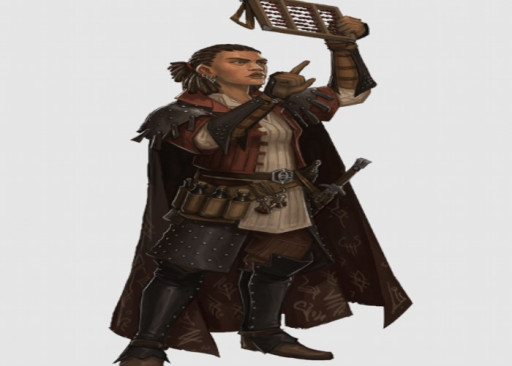
GMs often send invites through social media and a site called Warhorn. This is good for organizing everything on their end. But some GMs use these as a way to give their players hints for the character-creation process.
If the description says a lot about water and islands, you may want to have some Potions of Water Breathing and some swimming skills. If the description talks a lot about the undead, you may want to have some weapons geared toward fighting the undead. As you play more, you will learn how to interpret the clues.
11. Know what your Class’ Role Is

Every class has its own functions. Fighters go to the frontlines to attack and keep the monsters away from the ranged fighters and healers. Rogues use skills to avoid traps and attacks by positioning themselves to use their sneak attack abilities. Ranged attackers and sorcerors attack from behind the fighters. Healers heal and use stat-boosting spells to help the fighters.
When people try to break out of those patterns, chaos tends to result. Fighters die without healing. Support characters get squashed. And the rogue runs for his life. No one character can fulfill every role. That’s why Pathfinder is a team game. As you create a character, know what role you’ll play on the team.
12. Organize your Chronicle Sheets for Organized Play
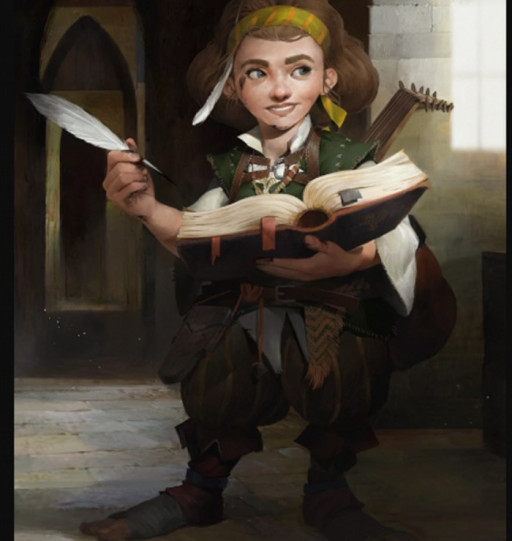
If you do Organized Play through the Pathfinder Society, you get Chronicle Sheets at the end of every session. Players typically keep their Chronicle Sheets in folders or on jump drives if they keep digital copies. These sheets are key to building your character for Organized Play.
Chronicle Sheets frequently provide players with early access to equipment that would otherwise be unavailable until higher levels. Sometimes, they’ll give you boons or special abilities that you can use a limited number of times. They can turn the tide of a battle if used correctly.
However, you need to have the Chronicle Sheet on you to reap the benefits. The GM can’t allow you to use the boon if you don’t have the sheet.
13. Invest in your Perception Skill

Eyes of the Eagle increase your Perception
Your perception skill is the most important. Perception allows you to find treasure, get the drop on enemies, keep enemies from getting the drop on you, and avoid traps. Even if you don’t have the highest perception skill in your party, raise it whenever possible. You never know when you might get lucky.
14. Spend some Skill Points on Some Knowledge/Lore Skills

Knowledge skills are important. Even if you only have a limited amount of skill points, you should at least get a couple of knowledge/lore skills. Knowledge skills allow you to not only get important plot details, but they can also help you in combat.
Knowledge skills allow you to determine what an enemy's weaknesses, resistances, and immunities are. This allows you and your team to plan your actions accordingly. You’ll also avoid wasting spells on enemies that are immune to them. And when you’re in the early game, spells are in short supply, so avoiding wasting them is essential.
15. Stat Boosting Items are the Most Useful Magic Items
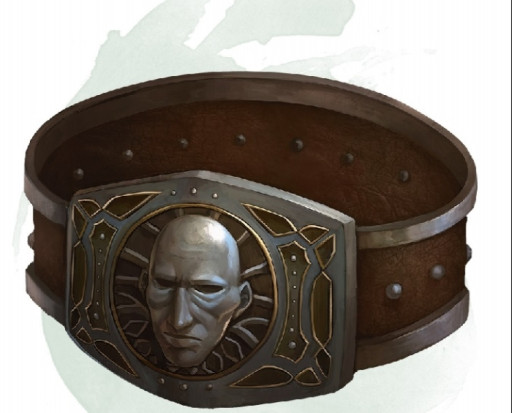
Belts like the Belt of Giant’s Strength should be a priority
Throughout an average Pathfinder campaign, you’ll come across various magical items. Some give you special abilities like flight or invisibility. While these can be useful in certain situations, your priority in the early game is to boost your stats. Here are some items to look for in the early game:
- Belts of Incredible Dexterity, Mighty Constitution, or Giant’s Strength (or items that mix and match the boosts).
- Headbands of Alluring Charisma, Inspired Wisdom, or Vast Intelligence (or items that mix and match the boosts).
- Rings of Protection, Amulets of Natural Armor, or Cloaks of Resistance
- Eyes of the Eagle (for Perception)
Regardless of the situation, having additional points in things like armor, dexterity, and so on is often the most useful. No one has ever blown a roll based on having too many points in a stat. Many players can attest that a stat-boosting item has made the difference between their character living and dying.
16. Get Magic Weapons as Soon As Possible
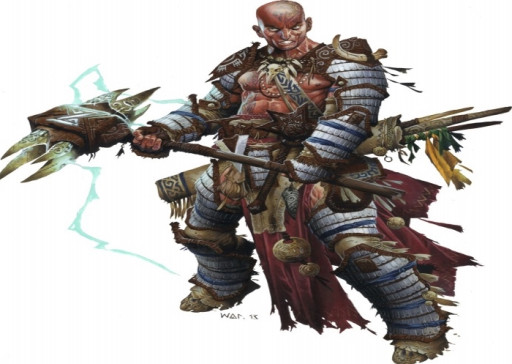
Upgrade your weapons and you could look this good
When you start, you’ll only have the most basic weapons. While they do the job of smashing goblins handily, you’ll quickly come up against threats where a generic sword won’t cut it. For example, a ghost is incorporeal and is immune to damage from normal weapons. A magical weapon is required to damage an incorporeal enemy. Even then, they only do half the damage in most circumstances. Still, it’s better than being useless. Getting a magic weapon is as simple as getting a +1 version of your sword. Not only is it magic, but it also increases your chance to hit and increases your damage.
You can upgrade your weapons to a maximum of +5 and as you gain those pluses, you’ll have the option of adding special abilities like additional elemental damage. Of course, these bonuses make weapons more expensive, but sometimes they’re worth it.
Armor has similar upgrades; get those too. They also have handy bonuses like the chance to nullify critical hits.
17. Get Feats/Spells that Compliment Your Party Members’ Strengths As You Level Up

As the game starts, you won’t know how your party interacts on a gameplay level. You’ll only know the most basic strategies. However, as your party’s abilities become more fleshed out, you can plan your characters around each other.
For example, when I was running a bard focused on battlefield control, I’d often get spells that inflicted blinding or paralysis to help the rogue’s battle strategy of trying to get sneak attack damage and inflicting status elements on the enemy to make things easier for the fighter to hit. In turn, the fighter would do everything he could to make himself the target of the enemy. Our healer would heal the rogue and the fighter and cast buff spells like Bless to increase their abilities.
Creating strategies like this won’t be done in a single session. It takes a few levels to understand how each person in your party behaves in a given situation. Once you understand each other, you can use your skills to help each other.
18. Add Ways to Heal Yourself

Clerics are good but they have limited healing spells early on
A Wand of Cure Light Wounds might not seem like the best use of 750 gold pieces, but these wands are more useful than you think. Even though these wands only heal a small amount of damage with each charge, the wands come with 50 charges. In 2nd Edition, wands have been nerfed, but there are other options, including a Battlefield Medicine Skill, to help.
Healers, particularly at early levels, only have a limited amount of healing spells. These are best saved for when things go wrong during combat. When you’re out of combat, a wand or healing skill will suffice.
19. Combat Reflexes is a Good Combat Feat

Having more attacks of opportunity is always good.
If you’re playing a class that does a lot of frontline combat in First Edition, Combat Reflexes is a good feat to get early. When an enemy passes into your attack range, tries to move out of your attack range, or tries to use a ranged attack (including spells) while in direct combat with you, you get an attack of opportunity. Usually, you only get one per round. But with Combat Reflexes, you can get more attacks of opportunity. These can change the outcome of combat, especially when you can deal a lot of damage in a single attack.
In Second Edition, attacks of opportunity are nerfed. However, if you run a fighter, they're good to have. Especially if the enemy is going toward a caster.
20. Guidance is a Great Support Spell
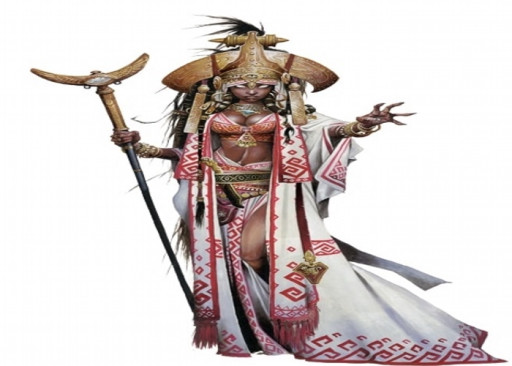
Clerics and Oracles have good support spells
If you’re playing a support class like bards or clerics, get the Guidance spell if you can. Guidance allows you to give a party member, or yourself, a +1 on their next roll. This might not seem like much, but many rolls often succeed or fail by one point.
The Guidance spell’s usefulness comes from the fact that you can use it an unlimited number of times per day. Second Edition has nerfed it. You can only use it on a party member once per hour in-game. However, it’s still a mainstay for a support character.
21. Prepare for Swarms
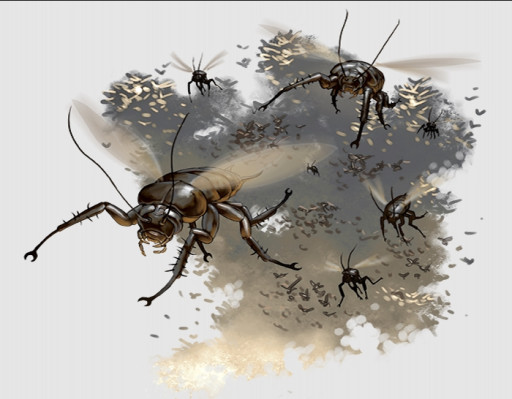
Swarms will trip up an unprepared party
One of the ways GMs and scenario writers like to trip up powergamers is by throwing in swarm enemies. Swarms consist of a large group of tiny enemies. Typically, a swarm can’t be killed by conventional attacks, as conventional attacks only target one enemy at a time. To defeat a swarm, you need attacks that hit multiple enemies at once, like fireballs.
Most casters have enough spells to handle swarms, but fighters can help too. Get yourself some Alchemist's Fire or Acid Flasks. These do area-of-effect damage and will help you deal with swarms.
22. Have a Melee Weapon Even if You Play Caster
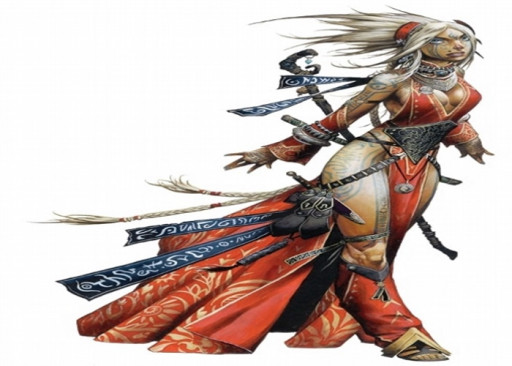
Casters should keep up a melee weapon to help give melee attackers flanking bonuses
No plan survives contact with the enemy. There’s always a chance that somebody will get through your team’s formation. However, this can be countered with flanking attacks. A flanking attack happens when someone is between two attacking opponents.
A flanking attack provides a couple of benefits. First, a flanked opponent is easier to hit. Furthermore, classes that get bonus sneak attack damage, like rogues, can deal sneak attack damage in fights.
Giving your caster a small melee weapon like a dagger in case of a formation breakdown will help the fighters get into flanking position and rectify.stab the problem.
23. Get a Bag of Holding

A Bag of Holding is your friend
By the time you’re in the midgame, you will probably have a few situational magical items. However, you can’t carry them all on your back without getting overburdened. You’ll need a Bag of Holding! A Bag of Holding is a magical bag that can hold a large number of things until you need them.
You can use your situational magical items to help you get over obstacles, put them back in the Bag of Holding, and put your normal gear on. The Bag of Holding will increase your options while not overloading your carrying capacity with stuff you don’t need all the time.
24. Consider Character Creation Software

These can go on your computer now
If you decide you like either version of Pathfinder, consider getting character-creation software. Back in the day, if we wanted to make characters, we had to lug around a veritable library of books and hunt through them looking for the specific feat or trait we needed. And we had to write everything down, often in barely legible writing.
Today, software and apps such as HeroLab and Pathbuilder can store information from books (you may need to upgrade the software to add more books than the Core book) and help you build your character. Many of these programs will do the math for you, which will make things easier as you add more skill points, feats, and magic items.
25. Finally, Have Fun!

All people are welcome at the table
Yes, this is cliche, but Pathfinder is just a game. You’re not being graded on whether or not your character has the best backstory or is the most perfectly built character. You’re among friends having fun.
And let me let you in on a secret if you’re new: Everyone was new once. Everyone has created characters with unfulfilled stories or abilities that sounded cool on paper but were rarely used in the game. I'm running one of those now. Just relax, browse through the rulebook, and start building.
You may also be interested in:
- Top 10 Games Like Pathfinder Kingmaker (Games Better Than Pathfinder Kingmaker)
- Pathfinder Kingmaker Best General - Who To Choose?
- [Top 10] Pathfinder Kingmaker Best Weapons That Are Powerful (And How To Get Them)
- Pathfinder Kingmaker Best Advisors - Who To Choose?
- [Top 5] Pathfinder Kingmaker Best Beginner Classes That Are Strong

